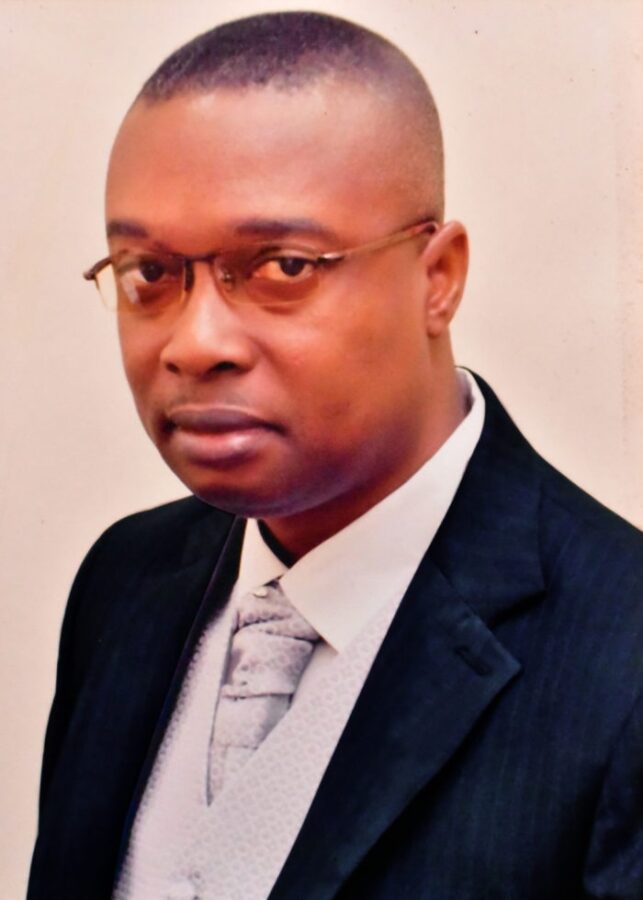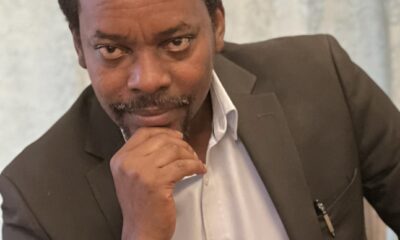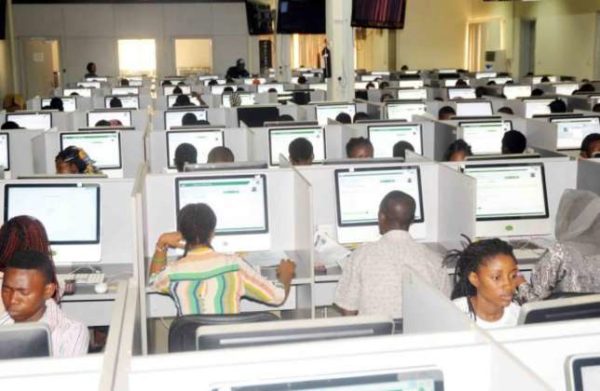Political Issues
Why Our Elections May Still Be Dirty -By Adewale Kupoluyi

Preliminary reports from the last gubernatorial polls in Bayelsa and Kogi states show that the elections were generally marred by massive violence, rigging, and vote-buying. This development is a sad reminder that our electoral process may not be improving despite efforts being made by the electoral management body and other stakeholders to ensure that votes count and that credible leaders emerge in the country. The issue of electoral violence and malpractice has become a recurring decimal in the nation. The truth is that politicians are not solely responsible for this. Political parties, law enforcement agents, and the electorate have a share in the blame.
The way we see politics in our country is not only do-or-die, but it has also been taken as a full-time profession that should be given all it takes to get into power. Politics is not seen as an avenue to get into public office and render selfless service to one’s fatherland. The Independent National Electoral Commission (INEC) had stated that despite the efforts by the commission and political parties to promote peaceful elections, including several engagements with stakeholders and signing of Peace Accords, reports were indicating that the process was in several places compromised and that politicians stock-piled arm.
Over 31,000 policemen and 87 gunboats were deployed to prevent violence in Bayelsa State alone, as police helicopters hovered over the capital while soldiers and anti-riot police mounted roadblocks at major points. In Kogi, a total of 35,200 police were deployed to protect the 1.5 million registered voters. The leading candidates, David Lyon of the ruling All Progressives Congress (APC) and Douye Diri, a former senator of Peoples Democratic Party (PDP) while in Kogi, incumbent Governor Yahaya Bello of APC was seeking re-election against Musa Wada of PDP and 22 other candidates. In both states, INEC has declared APC candidates winners while the Kogi West senatorial election is inconclusive.
Counting the losses, an official of a popular radio station was allegedly shot dead and many were injured during an attack on a political rally in Bayelsa; and in Kogi, a campaign office was completely razed down. Not only that; two persons were reportedly killed by stray bullets at the Adankolo polling unit in Lokoja. Electoral materials were hijacked in two wards in Odu and Community High School in Ayingba. There were reports that two people were feared killed in the Abocho community as sporadic shootings took place in Emewe Okapada, Ajiyolo communities, and the Egume Police Station Polling Unit in Dekina. It was learned that some masked armed men stormed the Aikpele-Ajaka Polling Unit. A PDP chieftain and women leader of the Wada/Aro Governorship Campaign Council, Mrs. Acheju Abuh of Ochadamu Ward was reportedly burnt alive by some thugs suspected to be supporters of APC, who locked her in and set fire to her house after spraying it with petrol. Thugs paraded the streets, fully armed without restrictions. There were ballot snatching and abduction of INEC officials in the Lokoja Club House, Ajayi Crowther Memorial College, Barrack area, and Takete, just to mention a few.
A leading election observer, the Youth Initiative for Advocacy, Growth and Advancement (YIAGA Africa) has called for the cancellation of the polls in Kogi, saying it had received reports of voter inducement and vote-buying in polling units such as Adavi, Ankpa, Itale, Idah, Yagba East, Kogi West, and Ajaokuta councils. Voters were paid as much as N5,000 and in Aluaja, Iyano Ward in Ibaji LGA, as INEC officials were said to be given N15,000, and security agents got N50,000. In Bayelsa, corps members were feared missing as thugs attacked polling units, and angry residents set voting materials ablaze in one of the wards in the Ogbia Local Government Area, Otuoke, where former President Goodluck Jonathan hails from.
Expressing his disappointment over the late arrival of INEC officials and election materials in Otueke, Jonathan said he was at his polling unit early without anyone to attend to him, stating that Nigeria had no justification not to get its electoral processes right, adding that many smaller African countries had been able to maintain a good electoral system, as Governor Seriake Dickson also accused security agencies of connivance in the poll. This ugly trend may continue unless urgent measures are put in place to address the declining credibility attached to our polls. Inability to apprehend and punish those found guilty of abetting, perpetration, sponsoring electoral violence, and engaging in vote-buying remain a big obstacle.
Another major source of worry is the level of poverty in the land. This seems to be the most crucial factor that is aiding this malaise. It is common knowledge that many Nigerians live below the poverty line and are seriously hungry to resist falling for electoral offences. Politicians and political leaders, who are largely responsible for the plight of the nation, would explore the same economic situation in the country to make the electorate sell their votes by inducing them with money. For them, politics is a huge investment for a bountiful harvest.
In Nigeria, many people go into politics because of what they can benefit from and not to serve the populace. It is for this reason that most voters become easy prey to a few Naira notes splashed on them by the same politicians responsible for their misfortune. The cycle of poverty, economic and political slavery then continues unabated. If nothing serious is done to nip this cankerworm in the bud, we are likely to see more of such rot in our polity. By next year, more gubernatorial elections would be held in states like Edo and Ondo. Tension is already building up in these states between the incumbents and their godfathers that have not been on the same page. The year 2023 is not too far a period for the general elections. Already, politicians have started campaigning using various platforms, groups, and structures.
To move away from dirty politics, INEC should intensify efforts at educating and enlightening the people on the dangers of vote-buying, electoral violence, and malpractice. The National Orientation Agency (NOA) should be more impactful in imbibing the right attitudinal change on Nigerians. The much-awaited electoral offences commission should be made operational while politicians found engaging in these acts should be sanctioned appropriately to serve as a deterrent to others. We should be able to vote without declaring any public holiday. The amended electoral bill should be passed into law to make technology use part of our very expensive electoral process by discouraging manual voting and collation hat breed avoidable rigging, fraud, and violence.
Political parties should let internal democracy take roots in their operations. Proper orientation should be given to aspirants on the need to appreciate the real essence of patriotism, nationalism, and public service. The high rate of unemployment requires quick intervention by the government and non-state actors. Apart from financial inducement, many youths and young persons are used as thugs. After elections, many of them are dumped and to survive, they are left to venture into all manners of crime. More importantly, decent, hardworking and committed Nigerians with enviable track-records and pedigree should venture in politics in the interest of our dear country. The non-challant attitude by fine men and women, not to participate in Nigerian politics, has been the nation’s albatross. This lukewarm disposition and apathy should stop for our politics to become better, more attractive, orderly, and less violent.
Kupoluyi writes from the Federal University of Agriculture, Abeokuta (FUNAAB), adewalekupoluyi@yahoo.co.uk,@AdewaleKupoluyi

















